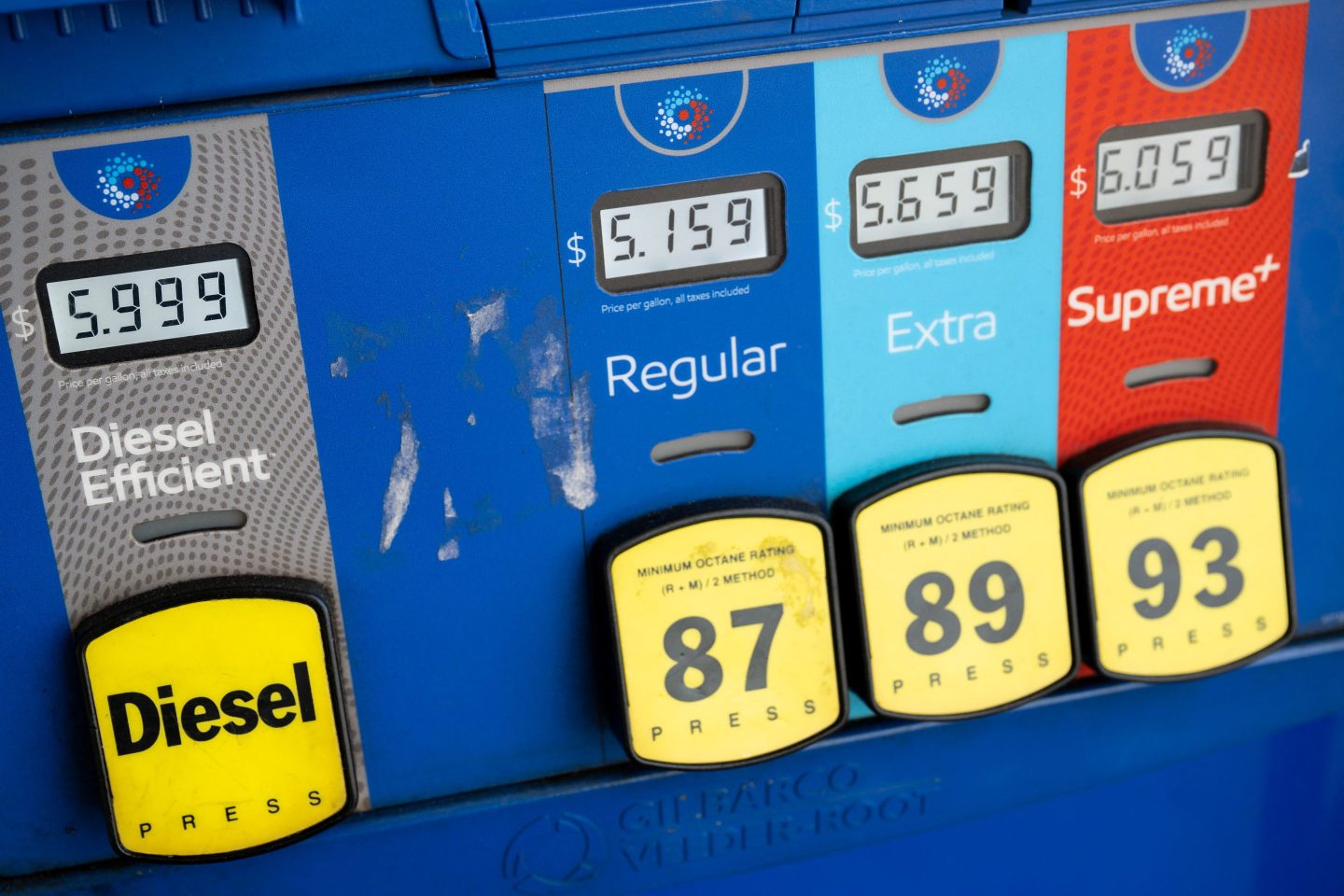To counter the sky-high prices American drivers are facing at the gas pump, President Joe Biden announced Wednesday he is calling on Congress to provide a three-month pause on the federal gasoline tax ahead of the July 4 holiday weekend.
“President Biden understands that a gas tax holiday alone will not, on its own, relieve the run up in costs that we’ve seen,” the White House announced, adding that Biden is calling for the reprieve to last through September. “But the President believes that at this unique moment when the war in Ukraine is imposing costs on American families, Congress should do what it can to provide working families breathing room.”
That would shave off about 18.3 cents per gallon, although it isn’t guaranteed that all of the savings will be passed on to consumers. The current nationwide average cost of gas hit $4.97 a gallon Tuesday, according to AAA. In at least 15 states, including California, Idaho, Indiana, and Michigan, the average price was $5 or more.
This requires Congress to act. The president does not have the authority to implement the tax on his own. With an equally divided Senate, and Republicans not likely to play ball, it’s not clear a federal tax holiday could even be implemented.
Even if it were, economists say suspending gas taxes wouldn’t do much to ease the financial strain Americans are feeling, as federal taxes don’t make up a large portion of gas prices. A report from the Penn Wharton Budget Model published earlier this year estimated that a 10-month federal tax reprieve would save consumers between $16 to $47 total, on average.
That report was published when gas prices were around $3.70 per gallon, on average, so consumers would save a little more now. But the savings still wouldn’t be dramatic.
Several states have introduced or implemented state-level gas tax holidays, including Connecticut, Georgia, Maryland, and New York, and the White House is also calling on states to do more. Tracking whether gas prices have fallen in those states as a result of the tax suspension is difficult to gauge, according to a separate report from the Penn Wharton Budget Model. That’s because it can be difficult to control for other factors that impact the cost of gasoline, including the cost of crude oil, refining costs, and more.
But the economists estimate that when these state-level tax breaks were put into place in Connecticut, Georgia, and Maryland, between 58% to 87% of the savings were passed on to consumers.
Though they would save a little bit at the pump, consumers would pay for the tax holiday down the road, economists say. The Penn Wharton Budget Model estimates that suspending the federal gas tax would cost $20 billion over 10 months. That money would come from funds earmarked for road improvements, though the White House also said Biden is asking Congress “to make sure that a gas tax holiday has no negative effect on the Highway Trust Fund.”
Still, Treasury Secretary Janet Yellen said Monday that a gas tax holiday could help cash-strapped commuters.
“It’s been a substantial burden on American households and I think, while not perfect, it is something that should be under some consideration as a policy to address it,” Yellen said during a press conference, according to the Associated Press.
The Biden administration is considering the tax holiday among multiple other measures for reducing prices at the pump, which have soared since Russia invaded Ukraine earlier this year.
This post has been updated with the White House’s statement.
Sign up for the Fortune Features email list so you don’t miss our biggest features, exclusive interviews, and investigations.













